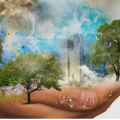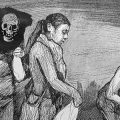Rich Reichley donates a gift beyond price
Rich Reichley, director of finance and operations at the National Portrait Gallery, was persuaded by Smithsonian friends to share his story of donating a kidney to a stranger on the West Coast. The Torch’s Amy Rogers Nazarov thought that hearing the story in Rich’s own inimitable voice was the best way to share this journey of generosity, humor and hope.
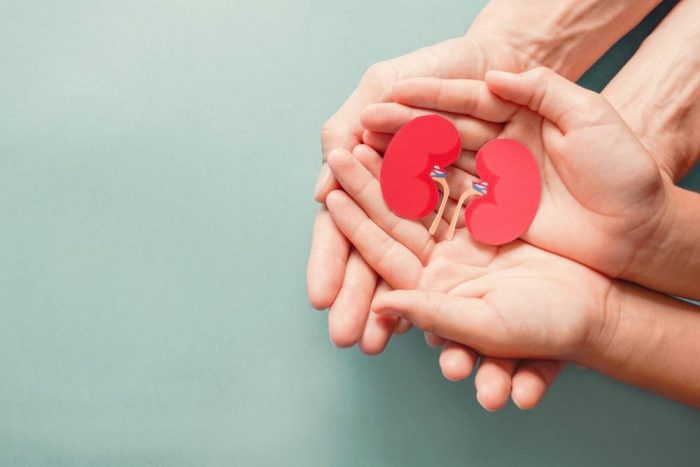
The Torch: What prompted your decision to donate a kidney?
Rich Reichley: I went to business school at UCLA. At the start of 2020, another alum, whom I did not know, wrote to the alumni email list that she wasn’t pitching a business or looking for an investment but asking for people to begin the screening process to donate a kidney.
Anita [last name omitted] explained both her kidneys were down to 13 percent functionality and would likely give out entirely within a year. As is the case with most people needing an organ replacement, Anita was years back on the donation waiting lists. However, she could have a transplant right away if someone made a “directed” donation to her. Having been unable to find a matching donor among her family and friends, she was reaching out to all groups to which she belonged.
I don’t recall if I thought then I would ultimately be a match for Anita, but I figured that beginning the screening process was no more inconvenient than donating blood. Quarts of bodily fluid samples later, I appreciate how wrong I was. But, as the pandemic raged on, and we all watched the sacrifices made by so many people, particularly healthcare workers, I felt like the process and the (possible) donation were not such a big ask.
You did this as the pandemic was raging, a time when most elective surgeries were being postponed, and still are.
Actually, kidney transplants were never held up during the pandemic, as they are not considered elective.
Anita had said she needed one in the coming year, so it was crucial to proceed. In June 2020, after several rounds of screening, it was determined I was not a match for her. However, if I kept up with the screening and was matched and donated to another recipient, Anita could be moved up to the front of the line and be entered into the nationwide matching database to receive a transplant.
How did you wind up having the necessary surgery in California?
Anita was being treated by the nephrology team at University of California at San Francisco. They arranged for all my screening to be conducted locally in DC at contract labs with a treadmill test and CT scans at Georgetown University Hospital. When the EKG specialist explained how it was something like an ultra-sound, I quipped, “But I’m not pregnant.” Without looking up from her console, she replied, “I wish men would come up with new jokes.”
By December, all the screening and testing were dragging out and wearing me out, and while I wanted to be able to help someone, I also wanted it to be over. After a couple weeks of miscommunication with UCSF about next steps and progress, I at last agreed with family and friends – none of whom thought it was wise to travel across country for the surgery – that unless they could schedule me within the next few weeks, I would inform them I would find a way to donate on the East Coast. I wasn’t too keen on that, since with any other nephrology team, I would have to repeat at least some of the screenings to their own satisfaction.
Then, in January 2021, the UCSF scheduling wheels lurched forward, or at least made more progress than I had experienced so far. The UCSF team told me that since I was so healthy (see below) they were confident I would match quickly once I was entered into the nationwide database. Sure enough, a little over 24 hours after I was entered, I received an excited call from UCSF. I should have bought a lottery ticket or played the ponies.
Whom at work did you tell, and what were their reactions to your decision?
I informed my immediate team and my boss Kim Sajet, NPG director, about a month into the screening, a few weeks before the Smithsonian went into enhanced telework. I kept them updated as it became more and more certain I would donate.
Similar to when I first explained to family and friends what I was doing, there were “hunh?s” and slight, slow nods, and the inevitable, “Is it someone you know?” Once I had been matched, I told the NPG senior staff so that we could sort through any procedural differences while I teleworked on West Coast time before and after the surgery. They were very supportive and congratulatory.
Speaking of telling people, I had to explain my decision to several UCSF staff like rounds of interrogations – which I have only seen on TV, mind you. They assemble a whole team of specialists to evaluate the potential donor’s physical and emotional fitness for the procedure. In fact, they serve as the potential donor’s advocates, always asking the question, does it place the person at undue risk, even balanced against the benefit to a recipient, to undergo the surgery and live one kidney lighter?
After they determined I was not a match for Anita, whom as I said I did not know, and I stated I was willing to continue through the screening and donation, they even had me speak with a psychologist. (When my sister Susan heard that, she enthusiastically said, “Can I be on that call?”) I also spoke with and kept up emails with Anita, initially because of an administrative foul-up in my first application for screening and then to keep up her spirits (or so I hoped) that someone was still trying.
Unsurprisingly, she wanted to know a bit about me other than our grad school connection and she asked why I was doing this. I wish I had a more profound reason, but I answered with the simple, honest truth: “Because you asked.”
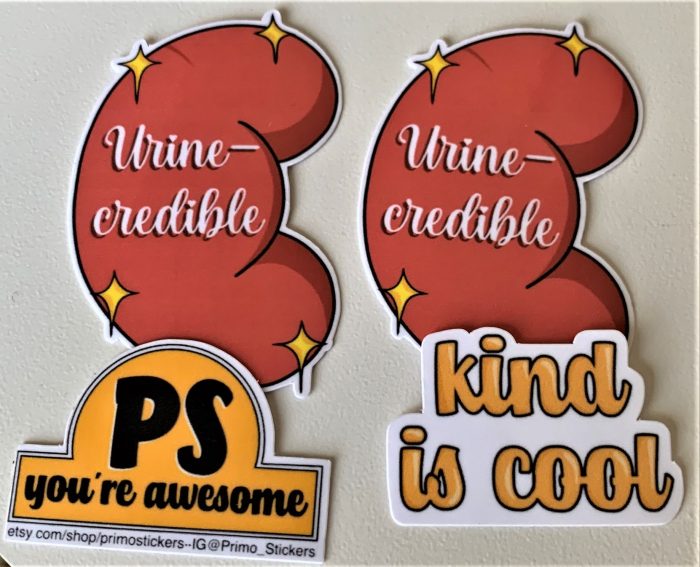
How did you prepare mentally and physically for the surgery?
I have never been mistaken for an athlete, but I tend to be purpose-driven. So, when the prospect of donating a kidney arose, I didn’t have much difficulty eating better, drinking less, and exercising more. I had done some running before, but over the pandemic summer I had really enjoyed taking my new bicycle to and from the Victor Building and exploring bike paths all over DC, Maryland and Virginia. I think it also helped me a lot personally, pushing myself physically and discovering new places during the year we were so shut-in. Must have paid off, because UCSF said my EKG was great. Really disappointed me in November when my bicycle was stolen. Nowhere near as bad as losing a pet, but I miss my adventuring partner.
Please describe the process of recovery and the implications of living well with one kidney for the rest of your life.
I’m no doctor, but I did just donate a kidney, so I feel confident in saying in the next several years, donating a kidney will be an outpatient procedure. They really just keep you for two or three nights in the hospital after the surgery for observation.
I was definitely out of it the whole day and night after the four-hour procedure, but up and walking in the recovery ward the next day. Some friends from my year of grad school took me into their home for a few more days of close observation and caregiving; they were incredibly generous and it was great to catch up with them too. (Getting to spend a couple weeks in San Francisco before and after the surgery – even if I couldn’t really go out except for walks – was also a big morale boost after a year without travel.)
The first few days with my friends I was sore and tired as expected, but I still took long walks. I was very surprised then, in the second week when I returned to a different place by myself, to be floored with fatigue for whole days. I came back to DC two weeks after the surgery, and for another week would still need to go down for afternoon naps like a small child.
You can live pretty much the same life with one kidney as you can with two; the single kidney enlarges some and increases its function to make up for the missing one. You don’t regain all the kidney function you had with two, but kidneys seem to the only organ that come in pairs with one as nearly a spare. I look forward to resuming running and bike-riding in the next few weeks.

Is there any way for you to learn who received your kidney, and would you want to or not want to? Why?
As I said, I was not a match for Anita. But early on February 25, a living donor in New York gave their kidney for her, flying out to San Francisco at the same time I was in surgery. About the time I was rolled into recovery, Anita went into surgery also at UCSF, to receive the NYC kidney. My left kidney – all kidneys being equal, so to speak, they prefer to take the left one because it has longer blood vessels to work with during the transplantation – caught the first thing smokin’ down to – wait for it – UCLA, and there was one further matching [between donor and recipient] that occurred down there. So, three people received kidneys that day from living donors.
I only know my recipient was doing well immediately after his or her surgery. I don’t feel strongly one way or another about learning who that person is, it’s entirely up to them. One of the questions the UCSF people posed was, would you be disappointed if that person didn’t do well with your kidney, and – more grimly – what if your recipient were to soon thereafter resume unhealthy habits or be killed in an accident? I told them those were possibilities I couldn’t control, but I could control and do my part by going forward with the donation.
Reflecting back on the whole, year and more long experience, how do you feel ?
You know, I indeed gave up a kidney, and am sure I really helped someone, but I have been struck by how the whole effort was made far more possible by the incredible generosity of friends taking me into their homes, and the kind, patient, and sometimes exasperated support of family and friends, even if they didn’t fully support the way and timing I took.
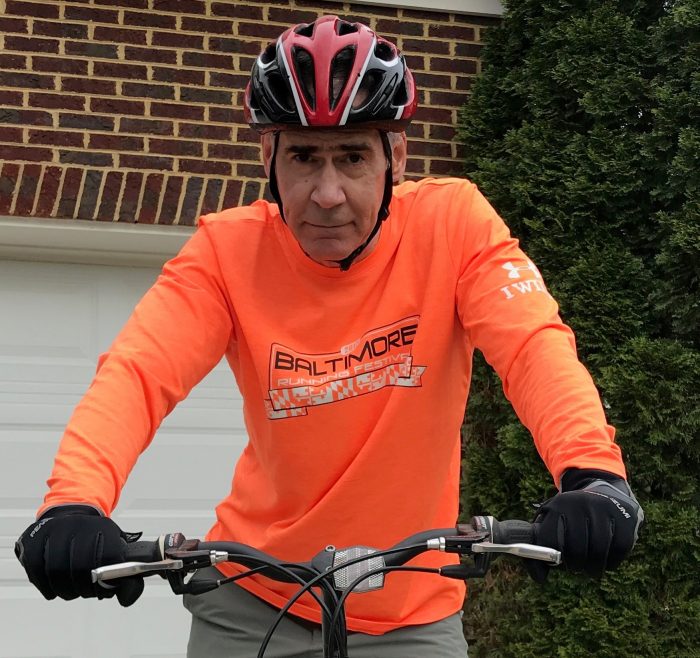
For more information about organ donation, please visit the Health Resources and Services Administration at https://www.organdonor.gov/
Posted: 26 April 2021
- Categories:
